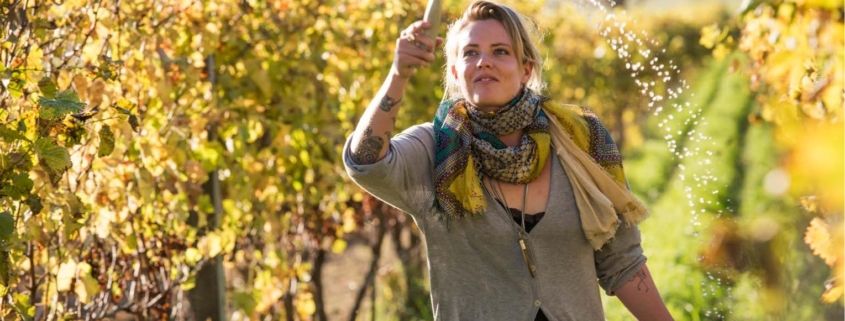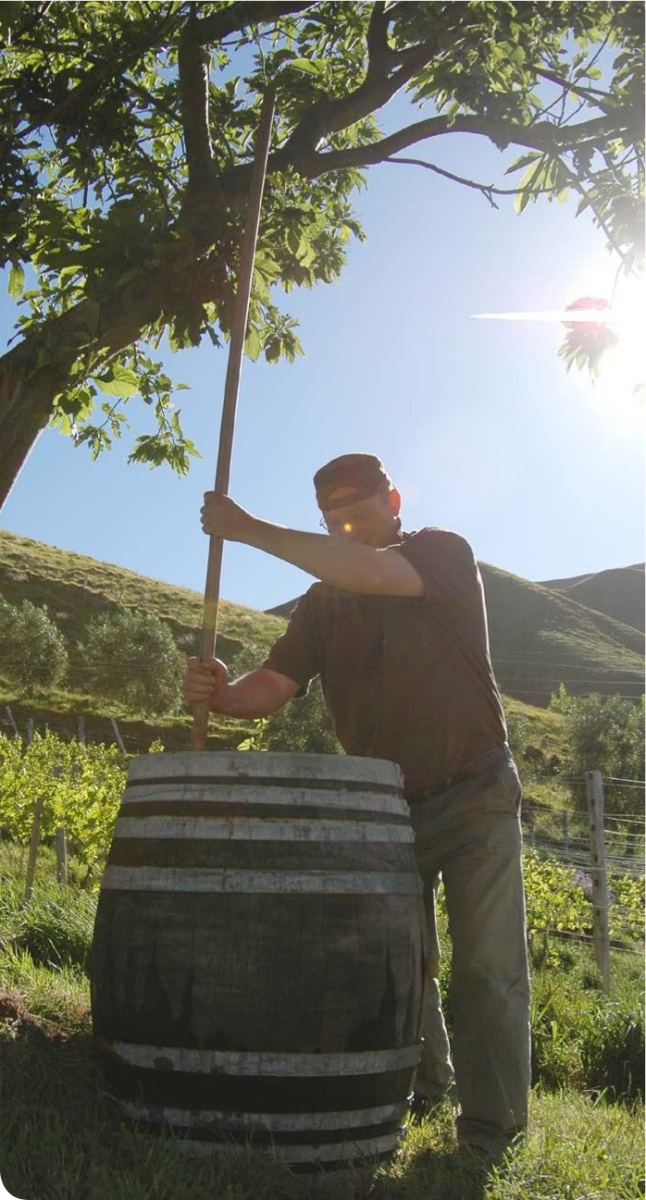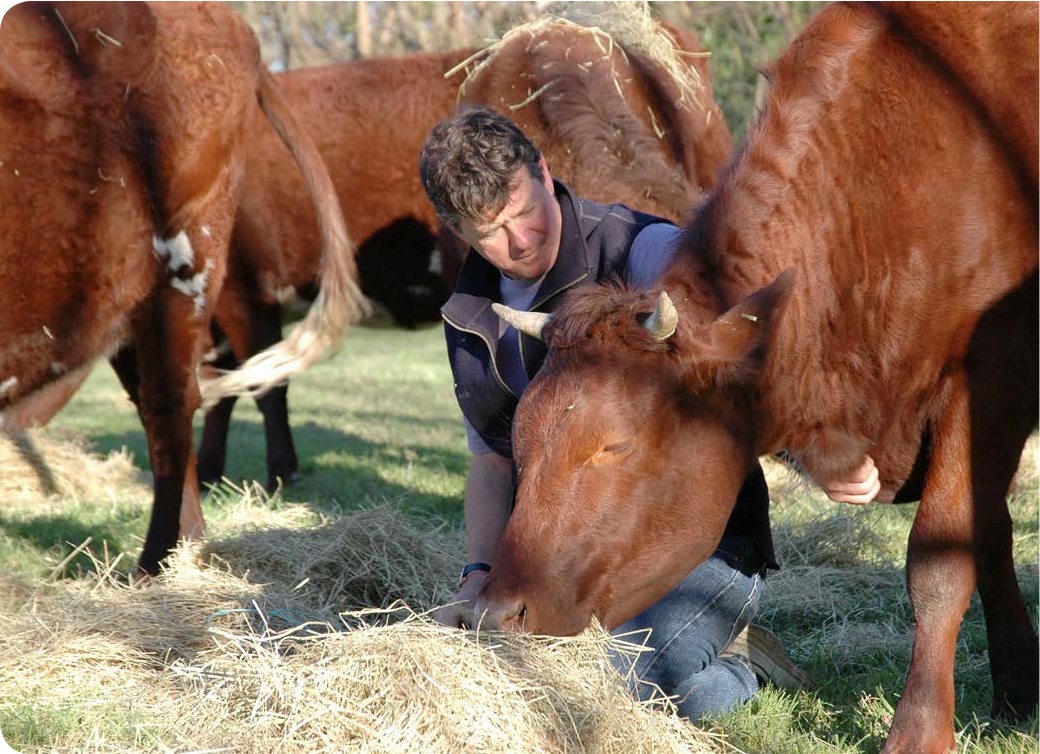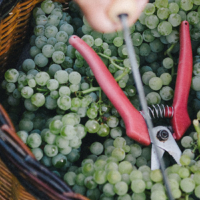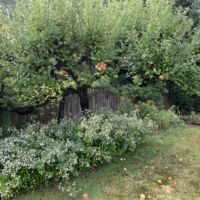Farm Individuality at Millton Vineyard by James Millton
Harvest Article – Spring 2018
“Seek the truly practical material world. But seek it so that it does not numb you to the spirit, which is active in it.” – Rudolf Steiner
I live near Gisborne on the East Coast of the North Island, close to the sea and therefore subject to a maritime influence of the morning mists and afternoon sea breezes. Our soils are young. We don’t irrigate. The air is enveloping, and the sun? Well, in terms of time, they say that it’s the first place on Earth to see this event each day, and it pleases us. People have trodden this piece of earth for a very long time. The family of my wife and business partner Annie have tilled this dirt for many generations. We live in a mild and pleasant climate.
We came to the practice of biodynamic agriculture quite young. Our upbringing on the land of our childhood had put the dirt under our fingernails at a very early age. We had dreamed and already worked pretty hard when Saturn made her first return and, like the distant planet, a light went off in our heads, our hearts and our hands. The concept of our practice put kinship to the fore, in a practical sense, and so we progressed with enthusiasm.
We grow wine for the table from our own estate-grown vines. These vines are all dry-farmed. They seek their required nourishment from the earth to the sky without any additional input, save our practices to bring in balance and harmony. We bring only minimal outside inputs onto the property, such as sulphur sprays, lime, and seaweed which we ferment. Why would you otherwise interfere? Our home vineyard is called Te Arai, nestled on the banks of this river; it means “the place you must pause”. Tūhoe, “the children of the mist”, camped on the riverbanks before permission was granted to proceed onward; they then crossed the river to share the garments made from the feathers of birds with the Rongowhakaata iwi, who in turn reciprocated with seafood to take back to their whānau. On a moonlit night, when wandering these banks, you can still hear the pitter-patter of these ancient feet and the murmur of wise voices, and more. Another vineyard is called Opou. This means “this is our place”, where the taiaha falls as it is thrust into the ground as a sense of welcome after the challenge – the pōwhiri so to speak.
Other vineyards are called after those I love, our children: Clos Monique, who incidentally farms wine in Forest Range in the Adelaide Hills, and Clos Samuel, who we share time with here at home. And then there is Clos Ste. Anne up in the foothills, where the soil is shallow with deep sandstone from ancient seabeds and a recent volcanic dusting from the last eruption from Ruapehu, in 1995. This is the place named with reverence to Annie, and where our finest wines are grown. The urupā (burial ground) on this property reminds us of people who have gone before us.
Seek the spirit. But seek it not in passion for the supersensible out of supersensible egoism. Seek it because you want to apply it selflessly – in the practical life, in the practical world.1
We needed cow manure for our preparations. So we travelled south to Hohepa in Hawke’s Bay, a place of incredible energy, sincerity and good intentions, and came home with our treasure and did what was necessary. After a time of practice and thought, we became aware that these cows had not been eating “our” grass, so the manure was not from here. We were lucky enough to obtain weaner calves from this pure source, who soon became cows, and when they came pitter-pattering to our place, the whole property changed. We cared for, loved and embraced these bovine queens, and still do. And those we work with then understood what it is to take care of animals, as well as plants, and an inner sincerity evolved. We buy in 500 from the association as well to get a touchstone and measurement of our own intentions. Comparisons as it were.
In such a way that we may say: We will to do all things in the light of the Spirit And we will so seek that light so that it evokes for us warmth
in all of our practical activities.
I read about 508. I had seen the plant equisetum growing in the drains of the famous chateaux of Bordeaux and the redwood forests of Northern California. I searched in New Zealand, and bought it from the Biodynamic Association, only later to find it growing freely here on the banks of the Te Arai River. The councils call it a noxious weed? Sshh… We went on to revere the oak trees growing around the vineyards. And suddenly dandelions, yarrow, nettles and chamomile were everywhere. We didn’t do it! And, like a flutter of warm air past an enquiring ear, a sense of togetherness came about. Was she watching I asked? Was she smiling, with all her friends as well, excited that at last this sentient being had seen the true meaning of what it was to acknowledge the ancient principle, in the practical world?
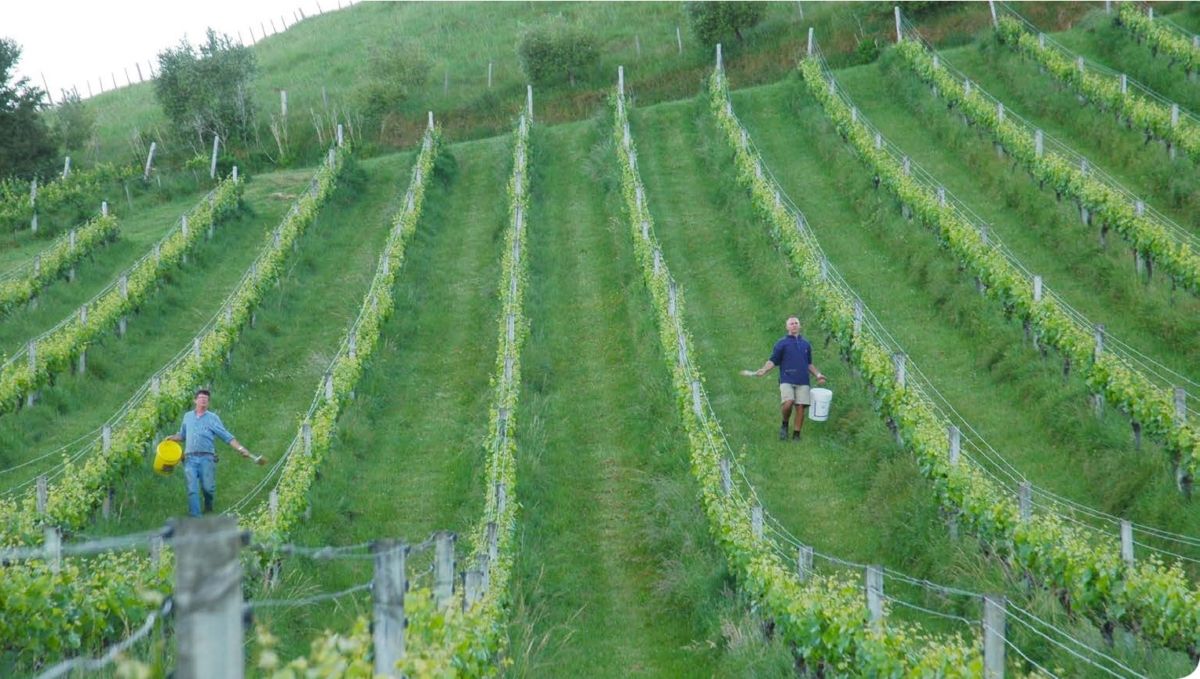
Turn to the ancient principle: Matter is never without spirit Spirit is never without matter
A glass of wine is more than it presents. It allows one to see the true intentions of our work and stimulates all of our senses, including sound – especially sound. The smell is the astral, the taste and following in the mouth is the ethereal, and the way the liquid clings to the glass, the meniscus, is the truest indication of life energy. Yin and yang, the centripetal and centrifugal forces prevail. If you add something out of the individuality from foreign lands, the whole lot simply pours out of the glass, regardless, without any backward glance. This moment is what really matters.
We work. We begin the day with a handshake; in this we feel each others’ intention and warmth. When we gather to make 500, to stir 500, to turn compost, to get up at dawn for the presentation of glitter to the rising sun – the 501, doing all that we know is required to make this place its own individuality, we know it evokes warmth. After all, why do people keep coming here, being attracted to this place, from all over the Earth? There is a light of the spirit which shines here.
We don’t “buy” it. We don’t pretend, and so, given time and energy, given strength and determination, the “I” becomes not egocentric but merely a hinge on a two-way door.
How it swings depends on us and how we reflect the daily challenges, not only socially, environmentally and financially, but most importantly in our land of Turanganui a Kiwa (Gisborne), culturally – the fourth quadrant in the social order. This is the mauri, the endearing spirituality and individuality of “our place”.
James Millton is artisan winegrower at Millton Vineyards and Winery, New Zealand’s longest-running organic and biodynamic vineyard, which he and his wife Annie founded in 1984.

